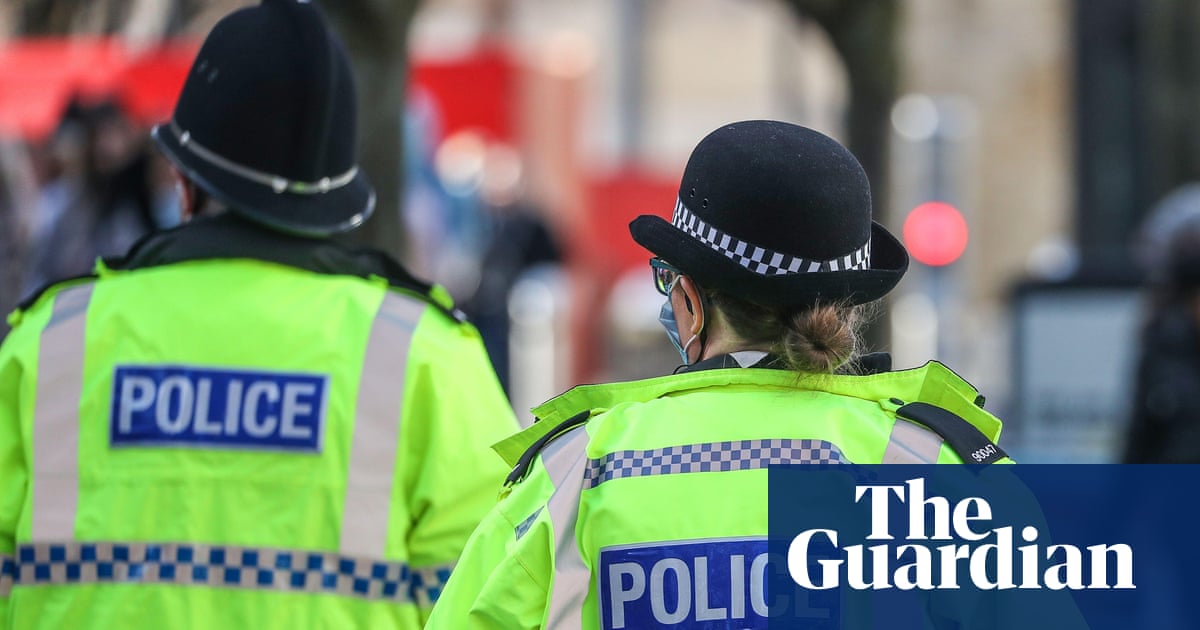
Young terrorism suspects could avoid prosecution if they agree to a diversion scheme, in a new government plan to cope with the post-lockdown surge in youngsters drawn to violent extremism.
The youth diversion orders are part of a host of changes announced by the Labour government, including a new tsar to ensure Prevent – the official scheme to deter people from terrorism – is as effective as it needs to be. Ministers claimed they were providing new money to fight terrorism.
The original plan for youth diversion orders was devised by Jonathan Hall KC, the independent reviewer of terrorism legislation, and revealed by the Guardian almost two years ago.
The plan is driven by concerns that tackling child terror suspects with powerful terrorism laws stigmatises them when they are not yet fully mature.
Counter-terrorism officials believe that a section of those arrested, while clearly breaking terrorism laws for having online material such as terrorism manifestos, pose little threat of staging an attack.
The days of terror suspects being driven primarily by a clear ideology are long gone, with most either showing no ideology or it being unclear.
Thus suspects, especially those aged 17 or under, lack a strong commitment to an ideological cause, with a substantial amount having mental health or other vulnerabilities that make them more susceptible to terrorist propaganda.
Key details of the plan are still unclear. Some with knowledge of government discussions believe it will offer an alternative to prosecution, others believe it may lead to youngsters being compelled to take part in Prevent, which until now has been voluntary.
Officials were unable to say what the maximum age of those the orders could apply to would be.
Justifying the plan, Yvette Cooper, the home secretary, said 13% of those under MI5 investigation for terrorism were under 18, a threefold increase in the last three years.
She also said arrests of under-18s for terror offences had increased from just three in 2010, to 32 in the year ending September 2024.
The proposed new orders would carry legal force and be imposed by a court, and under them youngsters would be expected to have monitoring software on their electronic devices to detect if they were accessing extremist material, limits on their use of devices, and having to take part in Prevent.
Cooper also said the threshold at which Prevent became involved with people would be reviewed. At the moment Prevent is only suitable for those with a clear extremist ideology.
Cooper said: “A lack of clarity remains over whether Prevent should be confined to cases of clear ideology or should also be picking up cases where the ideology is less clear, or where there is a fixation with violence.”
Recent Prevent statistics showed most referrals were for individuals with a vulnerability but no ideology or counter-terrorism risk.
Cooper promised changes to the Prevent programme and a new commissioner to oversee how it worked.
Hall said: “I wouldn’t underestimate the ambition packed into this announcement. Along with their desire to look again at Prevent thresholds, ministers are clearly pressing for a radically different approach to dealing with youths coming across the terrorism radar. The key words are intervention and early.”
Cooper said funding for counter-terrorism policing would increase next year by an inflation-busting 14% to almost £1.2bn.
Also on Tuesday the Home Office tried to neutralise claims from police chiefs of a looming funding crisis by claiming it was planning a big cash boost to improve policing on the streets of England and Wales.
The government claimed a real-terms increase in force funding of 3%, up to £19.5bn. But £330m of that will come from council tax, and only if local politicians decide to increase it.
The Met believes it will get £50m extra, but just for one year, and a source said that tough cuts affecting crime fighting would have to be made.
The chief constable of Norfolk constabulary, Paul Sanford, who is the National Police Chiefs’ Council’s lead for finance, said: “The funding settlement announced today presents real challenges for policing, with forces facing an estimated £1.3bn gap in finances over the next two years. This will inevitability lead to cuts across forces.”
Andy Cooke, the chief inspector of constabulary, described the settlement as “fair”, given the tight financial circumstances the government inherited.
Lisa Smart, the Liberal Democrat home affairs spokesperson, said: “Years of failure and ineffective resourcing from the previous Conservative government decimated neighbourhood policing – taking officers off our streets and leaving our communities far less safe.
“The government should be stepping up to fix this by properly funding the officers our communities need – not passing the buck to local police chiefs to put up people’s council tax instead.”
Source: theguardian.com

















